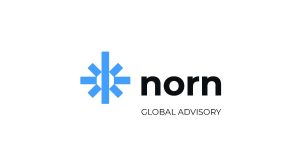Medical Research
Use Cases Advancing Medical Research
In 2023, we will have the means to reduce medical costs and delays by an order of magnitude, while greatly improving patient outcomes. This means the ability to:
- Generate better-informed hypotheses for testing
- Coordinate research globally, integrating the latest insights
- Reduce medical biases through broader and deeper meta-analyses
- Reduce medical costs and delays with better-informed treatment options
- Streamline research and practice processes, iteratively improving outcomes
The Sum of Human Medical Knowledge
The sum of medical knowledge covers and connects with a wide range of scientific domains, with major publicly accessible repositories like NCBI hosting more than a million peer-reviewed scientific papers. However, precious few scientists are likely to have read more than 100 such papers, and far fewer still more than 1,000. Though humanity has amassed a wealth of medical knowledge, that knowledge remains poorly integrated and utilized today.
Norn systems being prepared for commercial deployment could be put to the task of analyzing, integrating, understanding, and filtering bias out of every single medical peer-review paper ever published. Integrating the complete sum of medical knowledge could quickly reveal countless patterns in the data that have gone unnoticed, giving researchers new and better-informed hypotheses for testing.
Every potential treatment could be evaluated with the full breadth and depth of that knowledge, and every subsequent database could further grow and improve it. Even with doctors making the final decision, better performing, more affordable, and more complex treatments could be recommended and actively tailored to individuals, more quickly.

While doctors are able to deploy the sum of their own experience toward a patient, they do so with only short windows of time, influenced by their own biases and circumstance. By having systems whose sum of knowledge is orders of magnitude broader and deeper, with less bias, helping to guide the application of that knowledge at scale, those same doctors can offer much more value more quickly.
The medical industry worldwide is struggling to cope with the burden of overwhelming complexity, with some systems already failing, costs rising, chronic workforce shortages, and average lifespans starting to fall. We’ve had the necessary medical knowledge to change this, and in 2023 we’ll have the systems able to understand that sum of knowledge.

The opportunities for improving the medical industry are numerous and potent, but the opportunity unique to Norn systems is the capacity to integrate and understand the sum of medical knowledge.
The same advantages can be applied to all other domains of scientific research, but no field has a greater wealth of accessible peer-reviewed papers than the medical field.
For further documentation go to our Documents Page. Additional materials are available by request.
